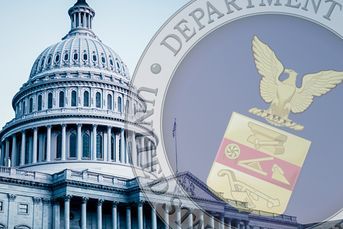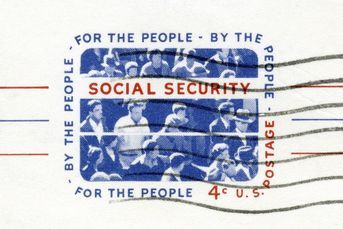DOL fiduciary rule enforcement won’t be halted after all
Massachusetts may be just the first state to hold firms accountable.
Last November advisers got word that the teeth of the DOL fiduciary rule — the enforcement mechanism known as the best-interest contract – would be clenched shut for another year and a half.
The legally binding contract between brokers and retirement-account clients, requiring brokers to act in clients’ best interests, was postponed until July 1, 2019. In the meantime, the rule, including the BIC, would be under review by the Labor Department, with potential revisions proposed by the new administration before the regulatory mouth could open and take its first bite.
Phew. The sigh of relief from around the industry was audible.
More good news: The Labor Department said it would not “pursue claims against fiduciaries working diligently and in good faith to comply” with the impartial conduct standards, which did go into effect June 9 last year.
Double phew.
But shallow breathing returned Feb. 15 when a jolt to the reprieve came from one William Galvin and his Massachusetts securities division.
The Office of the Secretary of the Commonwealth charged Scottrade Inc. with violating the DOL fiduciary rule by ignoring the firm’s own policies put in place to meet the regulation’s impartial conduct standards. Scottrade allegedly ran two sales contests between June and September 2017, despite a company policy that banned such contests due to their potential to lead brokers away from recommendations in the best interests of their retirement-account clients.
The big question
A question has long lingered about who ultimately would enforce fiduciary requirements of the DOL rule, especially when it came to individual retirement accounts that are not covered by protections of the Employee Retirement Income Security Act of 1974.
Parts of the DOL regulation now in effect require advisers to “act in the best interest of customers, charge no more than reasonable compensation and not make misleading statements.” But with the best-interest contract, which allows investors to file class-action suits against brokers who violate the rule, in limbo until July 2019, who would hold brokers to these impartial conduct standards?
We now have one answer to that question: the states.
Though Massachusetts appears to be the first state to attempt DOL-rule enforcement, it likely won’t be the last. Joseph Borg, president of the North American Securities Administrators Association and director of the Alabama Securities Commission, said he wouldn’t hesitate to take action in his state if a concern was brought to his attention by an investor or broker.
(More: State securities regulator says states can enforce DOL fiduciary rule)
“I see this as part of the normal scope of what states ought to be doing to protect their citizens and ensure that firms are following their own rules, let alone state rules,” Mr. Borg said.
And this is key. Massachusetts used the DOL rule to show how Scottrade allegedly was violating the state’s own securities laws, which it clearly has jurisdiction over. Violations the state regulator pointed to include engaging in unethical or dishonest behavior and failing to supervise advisers.
Attorneys whom InvestmentNews senior reporter Mark Schoeff Jr. spoke with while covering this development agreed that larger urban markets are likely to follow Massachusetts’ lead, given the breadth of financial institutions under their purview.
But this discussion leaves one 800-pound gorilla unaccounted for: pending lawsuits against the DOL fiduciary rule.
A plaintiff’s attorney in one of the highest profile cases sent a letter to the Fifth Circuit Court of Appeals on the heels of Mr. Galvin’s move, using the complaint against Scottrade as an added reason for a prompt decision on the rule by the court.
What happens to any state actions against brokerage firms that don’t comply with the DOL fiduciary rule if the regulation is vacated in the courts? And what’s to come of any state charges should the Trump administration alters requirements under the rule in the next year and a half?
The takeaway for advisers at this point must be that they are not off the hook while the Labor Department examines its fiduciary rule and the courts weigh the rule’s validity. This first complaint of DOL-rule violations proves that, indeed, someone is watching – and willing to hold brokers and their firms to account.
Learn more about reprints and licensing for this article.








